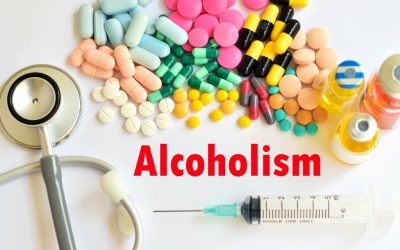Post-traumatic stress disorder: MedlinePlus Medical Encyclopedia
The nature of blackouts makes it difficult for researchers to examine the correlation between memory recall and blackout type. A blackout is a temporary condition that affects your memory. It may help to attend a support group, either in person or online, to connect with others who have had similar experiences. A person may take the medication for the short- or long-term, depending on the severity of their symptoms and the effectiveness of therapy. The goal of PE is to reduce avoidance of traumatic memories and assist the person in having less severe reactions to memories and triggers of the trauma.
A person who has blacked out or overdosed on alcohol could throw up while sleeping due to the loss of reflex control. This could cause them to choke and suffocate on their vomit. Studies have shown that stress affects both your mind and your body. Long-term stress can lead to structural https://ecosoberhouse.com/ changes in the brain, which can affect your memory and lead to difficulty concentrating. In extreme cases, too much cortisol can even lead to memory loss. A nervous breakdown (also called a mental breakdown) is a term that describes a period of extreme mental or emotional stress.
When to Contact a Medical Professional
Another helpful exercise for insomnia is to relax your muscles one by one, working your way down your body. Anger related to PTSD can have a number of damaging effects. For veterans with anger issues, it can make returning to civilian life more challenging. It can also create issues with relationships, contribute to chronic stress, and lead to unhealthy coping mechanisms.

But support groups and different styles of talk therapies may provide you with a safe space to explore these scary feelings. People with PTSD may also avoid their own feelings, thoughts, and memories. This type of internal avoidance may go unnoticed, according to the U.S. Some people will attempt to emotionally numb themselves with can ptsd cause blackouts distractions or misuse of alcohol and drugs. A March 2014 systemic review published in Social Psychiatry and Psychiatric Epidemiology noted comorbid alcohol misuse in people with PTSD ranged from 9.8 to 61.3%. We still don’t know the exact relationship between PTSD and recurring nightmares, but they seem to create a scary cycle.
Living with complex PTSD
Some medications for depression may reduce the symptoms of complex PTSD. These medicines may be especially effective in combination with psychotherapy. During in vivo exposure, the person confronts triggering stimuli outside of therapy as part of a plan they agree on with their therapist. In addition, the person must show problems with self-regulation, low self-esteem, a sense of shame or guilt related to past trauma, and problems maintaining relationships with others.
Living with residual symptoms of PTSD may be challenging, but know that you’re not alone. Even with PTSD treatment, the effects of inflammation and oxidative stress in the brain can be difficult to undo. In one study, 59% of those who had been treated for PTSD reported “subthreshold levels” of symptoms. As in, not enough to warrant full-on treatment, yet not completely back to a “normal” baseline either. A study published in August 2020 in the Frontiers in Psychology indicated that people with PTSD had greater instances of suicide ideation than people without PTSD. Startling easily is a distinctive feature of PTSD and is not such a prominent symptom of other anxiety-related disorders.
Self-Destructive Behaviors in PTSD
Each person is unique, so each treatment plan will be tailored specifically for that individual. If this is you, know that you are not alone, and there are ways to help manage those symptoms. Survivors of sexual assault may also be dealing with shame.
Early evidence suggests that symptoms of depersonalization and derealization in PTSD are relevant to treatment decisions in PTSD (reviewed in Lanius et al., 2012;5). Additional research is needed to more fully evaluate the effects of depersonalization and derealization on treatment response. The role of dissociation as the most direct defense against overwhelming traumatic experience was first documented in the seminal work of Pierre Janet.
Each person’s experience may differ, and it’s crucial to seek professional medical advice for accurate diagnosis and tailored treatment. Diagnosing psychogenic blackouts, including anxiety, can be challenging, as they do not have a specific medical test or imaging study to confirm their presence. Reliving responses are, therefore, thought to be mediated by failure of prefrontal inhibition or top-down control of limbic regions.


Tuliskan Komentar